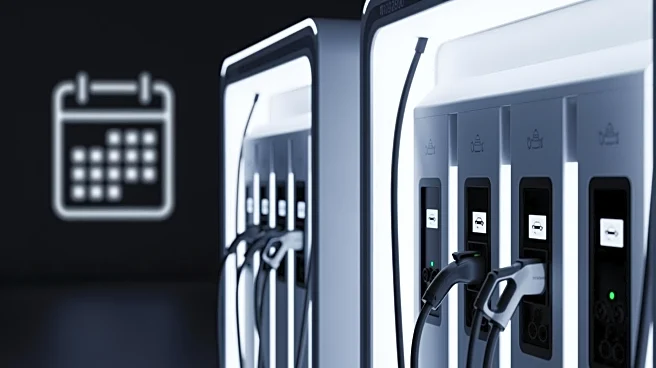What's Happening?
Rivian, an electric vehicle manufacturer, reported a net loss of $1.2 billion for the third quarter of 2025. Despite the loss, the company experienced a significant increase in revenue, which surged by 78% to $1.6 billion. This growth was driven by a 32%
increase in vehicle sales as consumers rushed to purchase electric vehicles before the expiration of a federal tax credit. The expiring credit created a temporary boost in demand, highlighting the impact of government incentives on consumer behavior in the electric vehicle market.
Why It's Important?
Rivian's financial results underscore the challenges and opportunities in the electric vehicle sector. The company's substantial loss reflects the high costs associated with scaling production and expanding market presence. However, the surge in sales due to the expiring tax credit demonstrates the critical role of government incentives in promoting electric vehicle adoption. As the industry continues to grow, manufacturers like Rivian must balance financial sustainability with competitive pricing and innovation. The expiration of the tax credit may lead to a slowdown in sales, affecting revenue streams and market dynamics.
What's Next?
With the federal tax credit now expired, Rivian and other electric vehicle manufacturers may face a period of reduced demand. Companies will need to explore alternative strategies to maintain sales momentum, such as introducing new models, enhancing vehicle features, or offering competitive pricing. Policymakers may also consider new incentives to support the transition to electric vehicles, which could influence future market trends. Rivian's financial performance in the coming quarters will be closely watched as an indicator of the industry's resilience and adaptability.
















